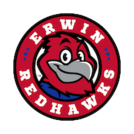
This resource is to help students learn how to sequence events in story.
- Subject:
- Reading Foundation Skills
- Material Type:
- Activity/Lab
- Author:
- MEGHAN PENNY
- Carrie Robledo
- Date Added:
- 03/25/2022

This resource is to help students learn how to sequence events in story.
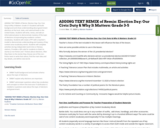
ADDING TEXT REMIX of Remix: Election Day: Our Civic Duty & Why It Matters: Grade 3-5
Students will build background and show understanding about government elections at the local, state, and national levels in the United States.
Students will write, revise, and edit an informational piece to demonstrate mastery of the topic of elections incorporating key academic content vocabulary.
Students will create a PPT with a teacher's model to demonstrate understanding and mastery of key content area vocabulary words.
Students will complete activities during independent work time or literacy stations. Provides a QR code for students to listen to stories (2 non-fiction and 1 fiction) about elections. After they listen to the stories they choose one of the non-fiction texts to write facts about, find the main idea and key details, and define new words

This packet of 41 short selections can be used regularly over the course of a school year to help students build fluency. There are enough passages to work on one per week - to two weeks. This source provides a protocol outlining strategies to engage students in short, daily fluency practice. Teachers can also send passages home for additional practice. To access the packet, select "View File" to download.
This packet is designed to strengthen the components of reading fluency: accuracy, rate, and prosody (expression). Students should understand what they are reading, thus embedded supports, such as student glossaries and ‘right there’ comprehension questions, are included. However, these passages are not intended for close reading or deep comprehension work.
Note for teachers of English Language Learners (ELLs): Regular fluency practice is essential for helping ELLs improve their overall literacy skills. Those acquiring a second language benefit especially from additional support with decoding, pronunciation, word identification, and prosody—all of which are the focus of regular fluency practice. Activities found in the Achieve the Core Fluency Packet reflect several best practices for English Language Learner instruction including:
• Having a text read aloud by a fluent reader prior to the student engaging with the text.
• Giving students multiple opportunities to hear the text read aloud by a fluent reader so that they can mirror the pronunciation and prosody of well-spoken English.
• Providing repeated opportunities for students to practice decoding skills both on their own and with support via active monitoring.
• Providing opportunities for students to learn new vocabulary through the use of student-friendly definitions, and to reinforce newly learned vocabulary through repeated practice with the same text and opportunities to use that vocabulary to respond to comprehension questions.
• Calling out work with “juicy sentences,” a strategy developed by Dr. Lily Wong Fillmore, that allows students to look deeply at word choice, sentence structure, and other text features that build their understanding of how English is used to convey different meanings.
• Providing numbered lines that allow students to quickly focus-in on specific sections of the text.
• Providing space for students to annotate the text with their own notes.
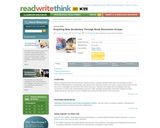
This lesson employs direct instruction and small-group discussion to help students learn new vocabulary skills while reading Patricia Polacco?s Pink and Say.

This annotating bookmark pairs great with fictional texts to help students understand what they are reading.
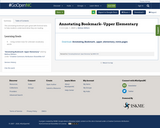
This annotating bookmark pairs great with fictional texts to help students understand what they are reading.

This online article describes aquifers as a source of freshwater located below the surface of the earth. The movement of water into and out of aquifers is also discussed.
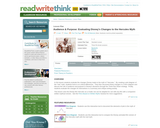
What drives changes to classic myths and fables? In this lesson students evaluate the changes Disney made to the myth of "Hercules" in order to achieve their audience and purpose.
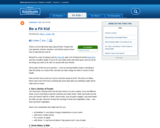
Students learn about what is means to be fit, eating well, exercising, and maintaining a healthy weight. Text for this article is appropriate for the upper elementary grade levels. A Spanish version of the article and a read-aloud option are also provided on the site.
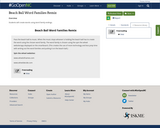
Students will create words using word family endings.
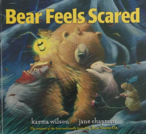
Intentional planning for read alouds is essential. This unit on Bears Snores On by Karma Wilson demonstrates how each reading of a book focuses on specific literacy skills.

This content resource provides the user with a visual representation of enzyme-substrate interactions resulting in a specific product. This is not a complete lesson, but would be beneficial for students as a review prior to an assessment or for teachers as a quick refresher on enzyme-substrate interactions.

In this game, students say the word from two or three spoken syllables.
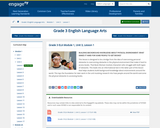
In this lesson from Expeditionary Learning, students will imagine themselves in the role of the main characters of That Book Woman by Heather Henson. They will discover the motivations of the characters through role-playing and investigating the illustrations in the text. Students will use an informational text to investigate why it might be difficult to get books to people, as it was in That Book Woman. This is Lesson 1 of 17 from the Grade 3 Curriculum Map Unit 3, Module 1: http://engageny.org/resource/grade-3-ela-module-1-unit-3 .
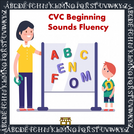
This resource supports students' ability to identify letters and letter sounds. Visuals are provided as guidance as well.
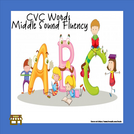
This worksheet was created as a supplemental resource for middle sound fluency instruction. Visuals have been provided to offer additional guidance.
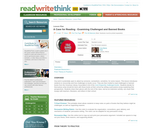
Students examine books, selected from the American Library Association Challenged/Banned Books list, and write persuasive pieces expressing their views about what should be done with the books at their school.

This lesson encourages parents and teachers to collaborate with first grade students to learn about cause and effect in a remote learning setting.
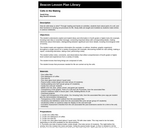
How do cells keep us alive? Through reading and hands-on activities, students learn about parts of a cell, and their functions in carrying out processes for life. Study skills are taught and modeled as students make entries in science notebooks.

This is a remix of a remix (by Stephanie Ballance) of https://goopennc.oercommons.org/courseware/lesson/192 by Martha Levey and Toni Luther. This is a multi-day unit on Cinderella and the many versions of the fairy tale. Students will listen to/read four versions of Cinderella identifying elements of culture and then compare/contrast two in groups. Then students will perform a reader's theater of one Cinderella story. The whole class will remix the Cinderella story to write a modern-day version that takes into account their own cultures. Students will then be able to publish their version on our Google Classroom and also share a recording of the groups performing the Readers Theater.